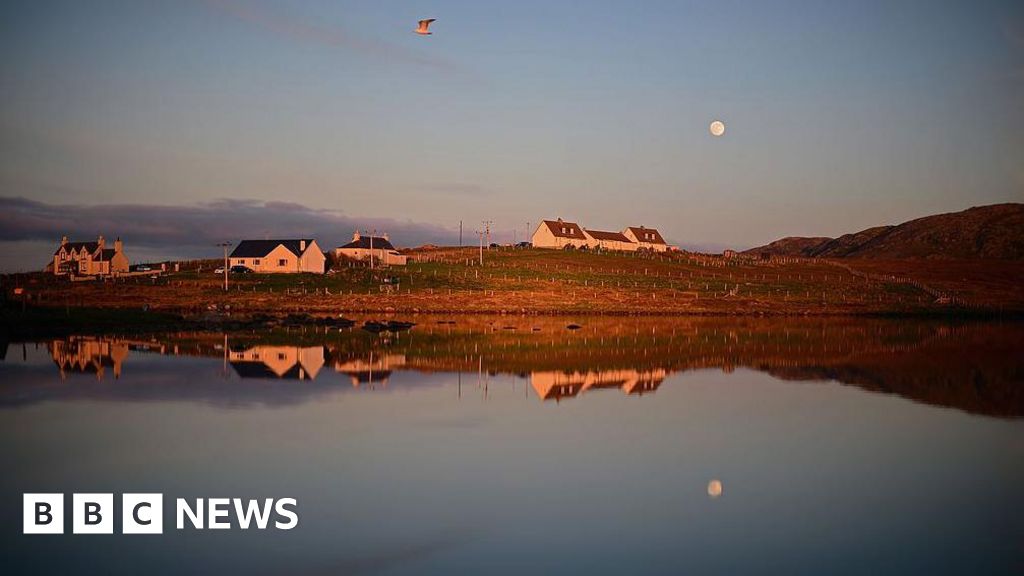The islands of Lewis and Harris in the Outer Hebrides maintain a distinctly different rhythm to the rest of the UK, particularly on Sundays. While much of the nation embraces a seven-day-a-week economy, life on these islands still largely observes a traditional Sabbath, a practice fading elsewhere for decades.
Swimming pools and sports centres remain closed, most businesses shuttered, and public transport is entirely absent. This isn't simply a matter of convenience; it reflects a deeply ingrained cultural and religious observance, with strong Christian traditions, particularly within the Church of Scotland and Free Church, shaping the communityâs weekly schedule. The most recent census figures reveal the Church of Scotland as the largest religious group in the Western Isles, accounting for 35.3% of the population.
However, the recent decision to allow a Tesco supermarket in Stornoway, Lewis, to open on Sundays has thrown this longstanding tradition into sharp relief, marking a potential turning point in the islands' history. The faithful observance of the Sabbath, or Lord's Day, is deeply embedded in the culture, reflecting the biblical Ten Commandmentsâ emphasis on a day of rest dedicated to worship and abstaining from work and leisure activities. Anecdotal evidence of this commitment includes past practices such as refraining from hanging washing out on Sundays, and even chaining up children's swings to maintain the peace and quiet associated with the Sabbath.
While some portray these practices as excessively restrictive, Dr James Englinton, a senior lecturer in Reformed Theology at Edinburgh University with family connections to Lewis, offers a different perspective. He argues that the characterisation of Sabbath observance as "dour, killjoy and weird" is a misconception, projecting mainland attitudes onto a unique community practice. He highlights that Lewis and Harris exemplify a living example of a community-wide day of rest, a custom common across continental Europe but perceived as unusual on mainland Scotland.
The longevity of these Sunday traditions, according to Rev Hector Morrison, principal of Highland Theological College UHI and a native of Lewis, is partly attributable to the historical impact of evangelical revivals. These periods of intense religious fervor fostered a deep commitment to pious living, with some areas experiencing such revivals every 10-15 years until at least the 1970s. Rev Morrison himself recalls a positive childhood experience of the Sabbath, rejecting the image of a dour and joyless day. He believes the enduring significance of Sunday on Lewis and Harris hinges on the continued relevance of the Gospel itself and the commitment of new generations to uphold these religious tenets.
While the Church of Scotland and Free Church are dominant, other faiths are present in the Western Isles, including Catholicism in the southern isles and a mosque in Stornoway. However, the last two decades have seen gradual changes to Sunday practices on Lewis and Harris. Hotels and restaurants have started opening on Sundays, and a petrol station with a convenience store now operates seven days a week. The introduction of commercial flights in 2002 and ferry services in 2009, both initially met with quiet protests by some islanders, further exemplifies this shift.
The debate surrounding Tescoâs Sunday opening is complex, not simply a division between religious and non-religious islanders. Local opinions are varied, with some, like Lizzie Aucott-Hall, arguing that the existing Sunday activity warrants Tesco's inclusion. Others, such as Ruth Pickard, a resident for over 34 years, express concerns about the erosion of the islandsâ unique way of life. BBC journalist Donald Lamont rightly points out that the debate is nuanced, encompassing a spectrum of perspectives, ranging from sadness and ambivalence to outright approval. The future of Sunday observance on Lewis and Harris appears to be in a state of flux, a testament to the ongoing tension between tradition and the evolving demands of modern life.
Article
Business

Lewis & Harris: The Enduring Sanctity of Sunday?

